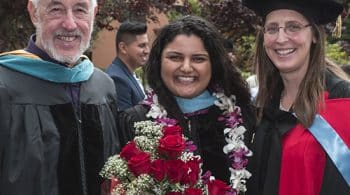
Australia Day is celebrated annually on January 26 and traditionally involves barbecues and ocean swims; but this day also serves to remember and acknowledge Australia’s indigenous population.
Australia Day: A Reflection on National Identity
As it is commemorated across the nation, this day serves as an opportunity to reflect upon what it means to be Australian and to honor our nation’s past; specifically highlighting Aboriginal peoples’ vital contribution.
However, not everyone agrees on what it means. For some people, its date remains a painful reminder of European settlement and discrimination against indigenous Australians. The arrival of the First Fleet on 26 January 1788 signaled the beginning of colonization, massacres, oppression and genocide against First Nations populations living across Australia.
Over the last several years, there has been an increasingly vocal effort to change the date of celebrations. Some council has moved citizenship ceremonies away from January 26th. Retailers including Woolworths and Kmart have stopped selling AustraliaDay merchandise altogether. Many Aboriginal people – including singer and actress Nala Mansell – have spoken out against this date as an official celebration day.
Historian Professor Kate Darian-Smith believes it should be changed to recognize it is no longer about commemorating Australia’s colonial past, but instead commemorating our nation’s future. She proposes replacing it with a more inclusive public holiday called Arrival or Makarrata Day, or moving it altogether to another date such as 1 September (first calendar day of spring) or 1 December (1 Wattle Day – as Australia’s national colors come from its Wattle Tree).
It began as a state-based holiday, commemorating when New South Wales declared itself as a colony in 1838. Later rebranded as Anniversary Day and Foundation Day before finally becoming a national public holiday in 1994. If teaching students about the holiday as part of your curriculum, use a newspaper supplement from a 1938 page as an illustration of its significance over time and ask them to select someone they think might have seen it and consider what that person might have thought of their country’s past.
Historically, it has also been celebrated with civic ceremonies and awards to recognize individuals for making significant contributions to Australian life. Since increasing immigration has created more citizens over time, it became an occasion to hold citizenship ceremonies too. Many sports events like horse races and regattas take place every year on Australia Day as part of celebrations to honor her birthday.
Though Australia Day is an official national holiday, not all Australians agree on its importance and how best to celebrate it. Protests by Indigenous Australians and others who saw it as being too nationalistic were held; such protests demanded greater recognition for Australia’s Indigenous inhabitants and cultural legacy while discussing how European settlement has affected Indigenous populations.
Sydney’s festivities kick off with an acknowledgement of Australia’s indigenous history with the WugulOra Aboriginal Morning Ceremony at Barangaroo, which you can learn about here. Following this, Sydney Harbour becomes an activity hub with entertainment, music, putt-putt boats and activities across Circular Quay, Darling Harbour and The Rocks for families to enjoy on it.

How Australia Day is Celebrated Across the Nation
Many Australians celebrate it to commemorate the country’s natural beauty and unique culture, which includes 550 national parks and 15 World Heritage-listed wonders – ideal spots for getting out into nature and discovering what makes Australia special. Yet for others, it serves as a painful reminder of colonization’s legacy on its first peoples.
The holiday is supposedly one that commemorates the anniversary of Captain Arthur Phillip’s landing of 11 ships at Sydney Cove on 26 January 1788 and marked as Foundation Day or Anniversary Day (source: https://www.slsa.sa.gov.au/australia-day-south-australia); later it became the holiday when all states and territories adopted it in 1935 and made it an official public holiday in 1994.
These events can include citizenship ceremonies, celebrations by state or territory governments and awards presentations by national organizations, speeches from Governor-General and Prime Minister as well as citizenship ceremonies to commemorate this significant occasion.
Some Australians have advocated that the date be moved, while others hold that its commemoration should remain. One instance of such tension was seen during a 2011 debate regarding the use of the word “invasion” to describe the arrival of European ships to Australia – it caused outrage among some white citizens when used as part of an article headline on the date by Australian Broadcasting Corporation and was widely published across media platforms.
Today, Australians from all backgrounds come together to celebrate what makes their country special. While some prefer barbecues and fireworks displays, others enjoy participating in community and family traditions like the Regatta (or Australia’s oldest sailing race) or citizenship ceremonies for new citizens who were recently welcomed as citizens. It provides all Australians a time to come together and reflect upon what it means to be Australian.
Teachers can help their students celebrate it more actively by creating fun jigsaw puzzles featuring iconic Australian landmarks and natural wonders, both individually and as a group activity. Jigsaw puzzles provide students with an engaging way to improve their attention to detail, problem-solving abilities, and problem-solving skills.
This fun holiday is an opportunity to showcase traditional Australian foods at any party or gathering, such as meat pies and sausage sizzle. Pavlova and lamingtons are also very popular options, so make sure you buy enough food to last the duration of the event, pairing these dishes with plenty of beer – the national beverage associated with many Aussie festivities.
Experience Australia Day without traveling Down Under by listening to some Aussie music or watching some classic Australian movies, playing backyard cricket with friends or attending a parade near them – whatever way they celebrate will help celebrate what it means to be an Australian! Celebrate with some beers with friends while appreciating all that it means to be one!
Though many schools and businesses close on Australia Day, pubs, restaurants, and other public venues often remain open allowing those living in Australia to take advantage of its vibrant nightlife or visit museums and art galleries that may only open occasionally during the week.






